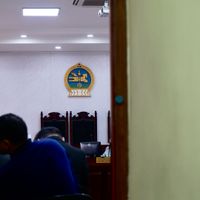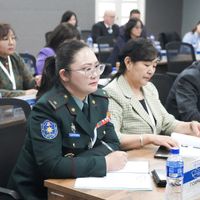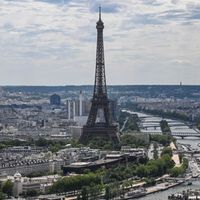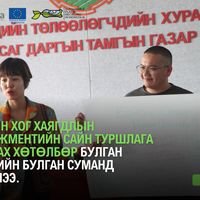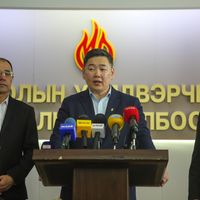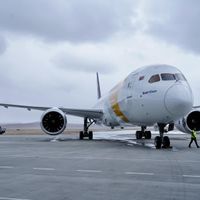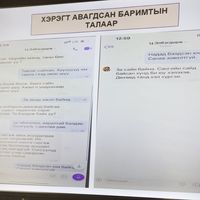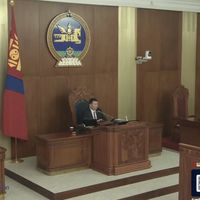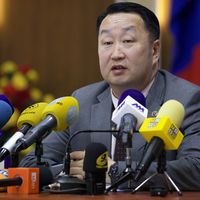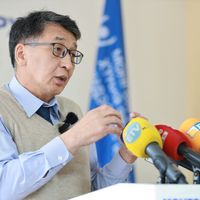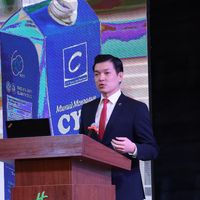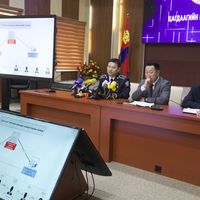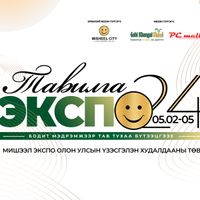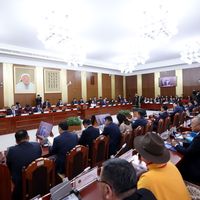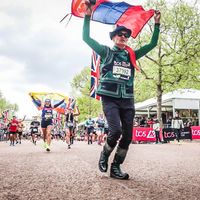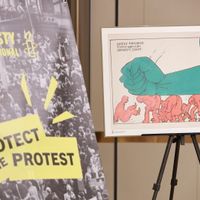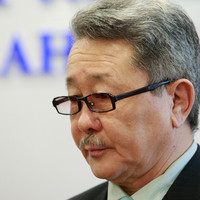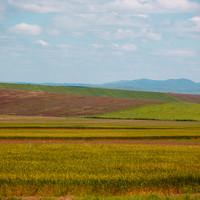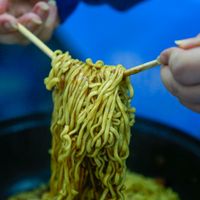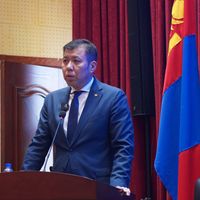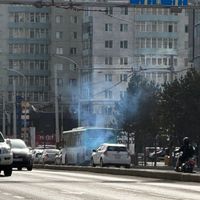Зөвлөх үйлчилгээний компани сонгон шалгаруулж авна


Ядуурлыг бууруулах Японы сангийн буцалтгүй тусламжаар Азийн хөгжлийн банктай хамтран Нийслэлийн Засаг даргын Тамгын газар хэрэгжүүлж байгаа “Улаанбаатар хотын хүнсний хог хаягдлыг дахин боловсруулах төсөл”-ийн хүрээнд олон улсын зөвлөх үйлчилгээний компани сонгон шалгаруулж авна.
Сонгон шалгаруулалтад оролцох сонирхлоо Азийн хөгжлийн банкны жишиг баримт бичгийн дагуу англи хэл дээр 2020 оны 12 дугаар сарын 19-ний өдрийн дотор зааврын дагуу цахимаар ирүүлнэ үү.
G9202-MON: ULAANBAATAR COMMUNITY FOOD WASTE RECYCLING PROJECT
administered by
ASIAN DEVELOPMENT BANK
executed by
THE MUNICIPALITY OF ULAANBAATAR
INVITATION FOR SUBMISSION OF
EXPRESSION OF INTEREST
CONSULTANCY SERVICES FOR FOOD WASTE RECYCLING
- In 2020, the Municipality of Ulaanbaatar (MUB) started implementing the “G9202-MON: Ulaanbaatar Community Food Waste Recycling Project” funded by Japan Fund for Poverty Reduction and administered by Asian Development Bank (ADB). The MUB, represented by its Project Management and Regulation Department, Capital City Governor’s Office is the executing agency and the Waste Management Division, Mayor’s Office, MUB is the implementing agency of the Project.
- The project is designed for waste management improvement in Ulaanbaatar, particularly for promotion of opportunities for segregation of food waste at the source and recycling. The project will promote the transformation of food waste into compost, improving productivity for farms and gardens. It will provide education and awareness rising to local communities on food waste recycling. The project will particularly benefit schools, kindergartens, and communities including the poor households living in ger areas, who will participate in pilot projects under the project.
Overview of the assignment
- To ensure successful implementation of the Project, the Project Implementation Unit (PIU) will be supported by a team of international and national experts who will provide their expertise and professional advices on various fields to achieve the project outputs and its objectives. The Consultant could either be a single firm or a joint venture of companies that have extensive and demonstrated experience in the field of research and development.
- The consulting services are expected to start in March 2021 and continue until 28 December 2023 (current project completion date). A total of 25 person-months of international and 52 person-months of national consulting services are expected.
- Consulting service will be selected under Quality and Cost Based selection (QCBC) method using a Biodata Technical Proposal (BTP) format, in accordance with the policies of the Bank detailed in the Procurement Regulations for ADB Borrowers (2017, amending time to time) which can be found at the following website. – (available at https://www.adb.org/documents/procurement-regulations-adb-borrowers)
- The project site is Ulaanbaatar, the capital city of Mongolia. Various locations in the city will be selected as the project implementation sites. International experts are expected to work in the field from time to time and provide input from distance. Field missions may involve trips to waste recycling plants and sites located nearby Ulaanbaatar.
- The project has the following three outputs supported by the Consulting Services:
Output 1: Options for food waste recycling identified. This output will focus on a rigorous and analytical assessment of food waste in Ulaanbaatar to identify (a) food waste composition, (b) local communities’ willingness to do composting and their expectations on how they will benefit from food waste recycling, and (c) gender-specific issues in food waste recycling;
Output 2: Participatory food waste recycling demonstrated. This output will develop and implement pilot projects for food waste recycling into compost, on three scales: small-, medium-, and large.
For the small-scale pilot projects, (i) five khoroos[1] will be selected, of which 10 households will be selected from each khoroo, and one household which will conduct composting will be selected from the 10 households in each khoroo; (ii) in each khoroo, the selected household for composting will collect food waste from the 10 households and conduct composting; and (iii) produced compost will be used in the khoroos for kitchen gardening, landscaping, etc. or sold. Bins for food waste, composters, cardboard boxes for compost storage (particularly for winter), shovels, watering cans, gloves, respirators, etc. will be provided to the selected households.
For medium-scale pilot projects, (i) five schools and five kindergartens will be selected; (ii) a special school or kindergarten team consisting of a leader and two staff will be established in each school or kindergarten; (iii) the special school or kindergarten team in each school or kindergarten will produce compost using food waste collected from its canteen, use produced compost for green open spaces, flower beds, or vegetable gardens in the school or kindergarten, and conduct education of the students or children to change their mindsets on waste and environment. A composter with self-heating system which can conduct composting even in winter will be provided to each of the selected schools and kindergartens. Shovels, watering cans, compost containers (particularly for winter), gloves, respirators, etc. will be provided to the selected schools and kindergartens.
For the large-scale pilot project, (i) the MUB will provide its vacant land for the construction of a composting facility; (ii) a building with heating system for composting will be constructed on the land; (iii) a composter with self-heating system which can process at least 2,000 kilograms of food waste per day and relevant equipment such as a packaging machine will be installed in the building; (iv) waste pickers or unemployed youth and/or women will be employed as workers for composting and sale of compost; (v) markets, restaurants, hotels, schools, kindergartens, and households which will provide food waste will be selected; (vi) the MUB will provide a truck and truck driver for transportation of food waste and compost; (vii) bins for food waste for the selected markets, restaurants, hotels, schools, kindergartens, and households, food waste container for the truck, and shovels, watering cans, special clothes, rubber boots, gloves, caps, and respirators for the composting workers will be procured; and (viii) the workers will produce compost from the provided food waste and sell the produced compost. Operational and management cost of the composting facility including workers’ salaries will be paid from income generated from selling compost, after 1 year from the start of the large-scale pilot project.
Output 3: Up scaling program for food waste recycling developed. Activities under this output will include: (i) workshops; (ii) education campaigns for different stakeholders; (iii) a study on future market demand for compost; (iv) a study on other opportunities on technologies and partnerships for food waste recycling products (e.g., for energy production); (v) a study on regulatory and institutional framework for scaling up the pilot projects; (vi) drafting of a strategic program and action plan on food waste recycling for Ulaanbaatar, to scale-up the pilot projects to overall Ulaanbaatar; and (vii) consultations with the MUB on the drafted strategic program and action plan on food waste recycling, with view of obtaining endorsement by the MUB.
The Consultant qualification requirements
- The Consultant must be able to provide a team of international and national experts qualified to perform the tasks detailed in the outputs of the assignment as per the minimum individual qualification requirements specified in the Terms of Reference (available on ADB website or upon request).
- The required number of international and national experts and their expected inputs are as follows: International experts: i) Food waste management specialist (Team leader): 14 person-months; ii) Composting specialist: 8 person-months; iii) Climate change specialist: 3 person-months; National experts: i) Food waste management specialist (Deputy team leader): 18 person-months; ii) Composting specialist: 14 person-months; iii) Climate change specialist: 3 person-months; iv) Survey assistant: 1.5 person-months; v) Compost marketing specialist: 3.5 person-months; vi) Participation coordinator: 12 person-months;
- The Consultant will need to ensure that the consulting services continue smoothly without interruption, and be ready to provide key experts who are equal or more qualified in case of premature of experts.
- The Consultant (i.e. the firm) must be able to demonstrate the following:
- Prior experience in providing consulting services to projects and programs implemented in countries or areas with similar situation as Mongolia in terms of either climatic, environmental and/ or socio-economic factors;
- Prior experience in waste management, waste recycling, environmental research and impact evaluation;
- Proven experience of identification of appropriate technology and its implementation methods;
- Prior experience in identification of environmental impact of construction of a waste management facility will be an advantage;
- Proven experience of successful collaboration with projects and programs funded by international organizations and donor countries; prior experience of working together with ADB or World Bank will be an advantage;
- Eligible consulting firms from ADB member countries are invited to indicate their interest in providing the required services. Interested consultants must prepare and submit an “Expression of Interest (EOI)” in a standard form, “Template for Expression of Interest (Consulting Firms)”, which can be obtained by contacting the PIU or downloading from the ADB website (https://www.adb.org/documents/recruitment-firms-individual-consultants-executing-agencies).
- The EOI should be submitted online through ADB's website before 11:59 PM (Manila Philippines, local time), 5 December 2020. To submit the EOI via online: (1) register with ADB’s CMS (Consultant Management System) at https://selfservice.adb.org/OA_HTML (2) go to http://csrn.adb.org, (3) click on “Mongolia”, (4) find captioned project name and click on “view”, (5) click on “submit EOI”, and (6) follow the instructions. All requested information must be filled-in completely.
Additional information can be obtained from:
Project Implementation Unit
MSN Building, Unit 503
Mahatma Gandhi Street,
Khan-Uul District, 15th khoroo,
Ulaanbaatar, 17011
Telephone: +(976) 75052223
Email: procurement.ubfoodwaste@gmail.com, coordinator.ubfoodwaste@gmail.com
Or visit ADB website (https://www.adb.org/projects/51102-001/main)
[1] Khoroo is the smallest administrative unit in Ulaanbaatar. Ulaanbaatar is divided into nine districts, which are further divided into khoroos. There are 152 khoroos in Ulaanbaatar.




